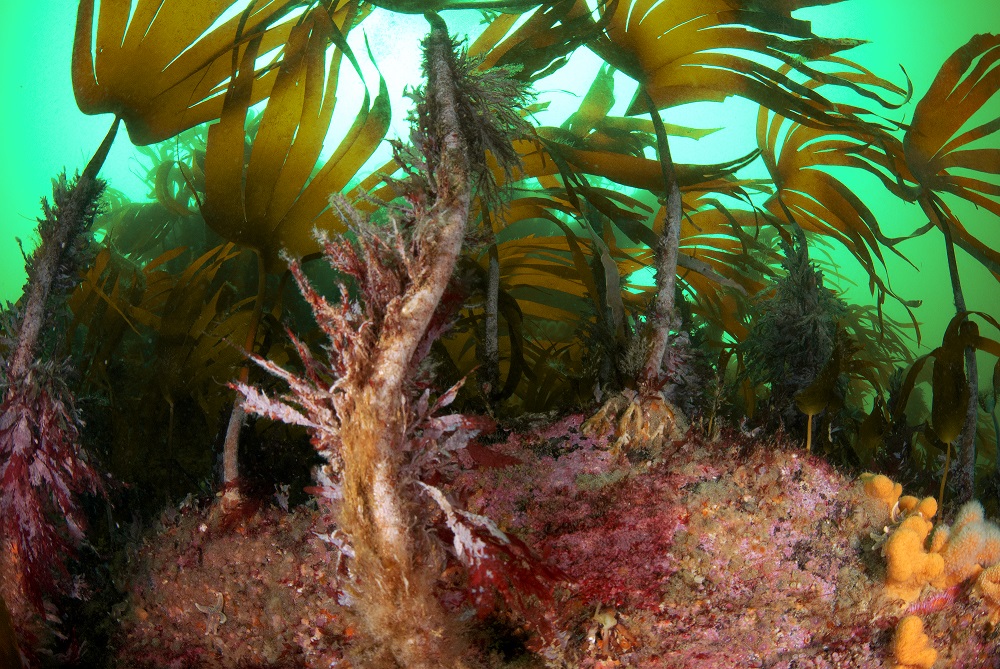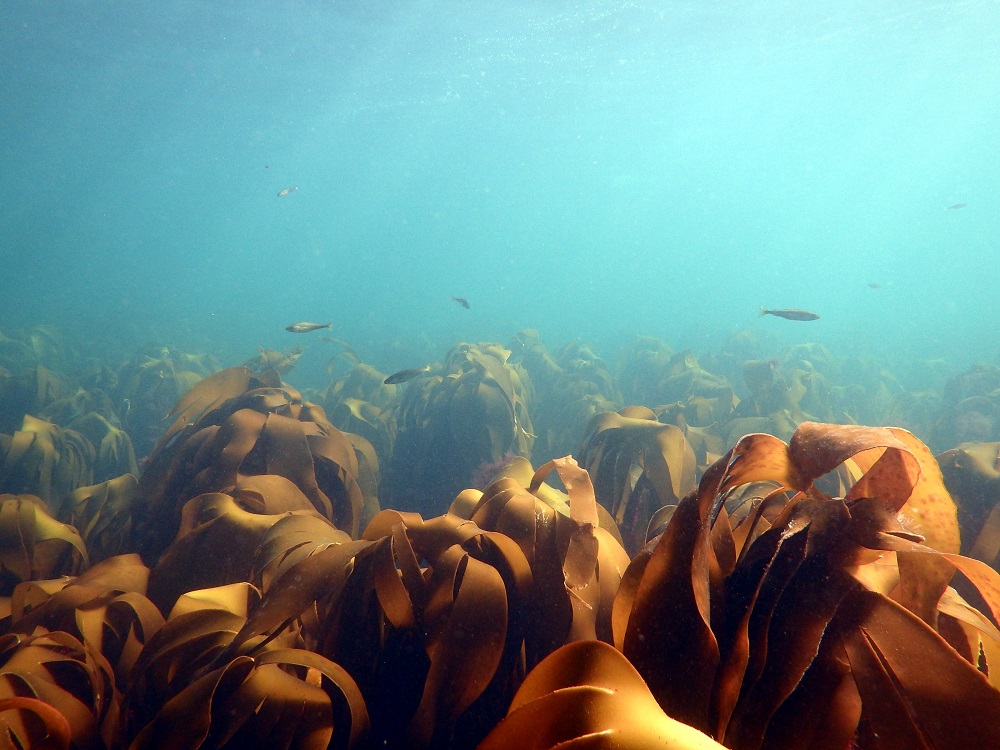
A global study has found that ocean forests are amongst the most productive ecosystems on planet Earth.
Scientists from the Marine Biological Association were part of an international team that collected data on ocean forests all over the world. They found that these forests can be larger, and just as productive for sustaining life as the Amazon rainforest.
Ocean forests are formed by kelps, a type of brown seaweed. Kelps grow by capturing the sun’s energy and carbon dioxide through photosynthesis, and can tower above the seafloor to heights over 35 metres in some places. Figuring out exactly how much these hidden forests grow across the globe was no easy task, however.
“On land, we can use satellites to measure tree growth. But underwater things are much more complicated, as most satellites cannot make measurements at the depths kelp forests are found.” said Albert Pessarrodona, lead author from the study.
To solve this issue, the team had to compile data from hundreds of studies and sites across the globe where productivity has been measured by SCUBA divers. The result: one of the largest compilations of productivity measurements of coastal vegetation assembled to date.
The team then used those findings to model how productivity changes with variables such as temperature, light, nutrients and wave exposure. In this way, they could predict the productivity of ocean forests where measurements do not exist.
They found that, unlike on land, where forest productivity peaks in tropical rainforests, productivity in the sea peaked around temperate regions, which are usually bathed in cool, nutrient-rich water.
Dr Dan Smale, Senior Research Fellow from the Marine Biological Association said: “We’ve known for a long time that seaweeds grow extremely quickly and fix a lot of carbon as biomass. What we didn’t realise was quite how extensive seaweed habitats are globally, but we now know they cover an area greater than the Amazon rainforest. When you combine their high productivity with widespread distribution, you get a globally-significant flow of carbon through these vital ecosystems”.

Some of the most productive ocean forests included the Great African Sea Forest, which stretches around southern tip of Africa, and the Great Southern Reef, a system of kelp-dominated reefs that covers the bottom third of Australia. These two forests produce 4 times more biomass than most of the crops we cultivate today.
Harnessing such immense productivity is a promising opportunities to help meet the world’s future food security, with the work conducted here providing insights as to where greatest growth can be expected when scaling up seaweed aquaculture in coastal areas.
The productivity of ocean forests also means that they assimilate great quantities of carbon dioxide from the atmosphere. This means ocean forests could play an overlooked role in climate change mitigation if some of that carbon ends up being sequestered. In a separate study, the authors found that ocean forests assimilate a similar amount of carbon than the Amazon rainforest.
Read the full paper: https://www.science.org/doi/10.1126/sciadv.abn2465